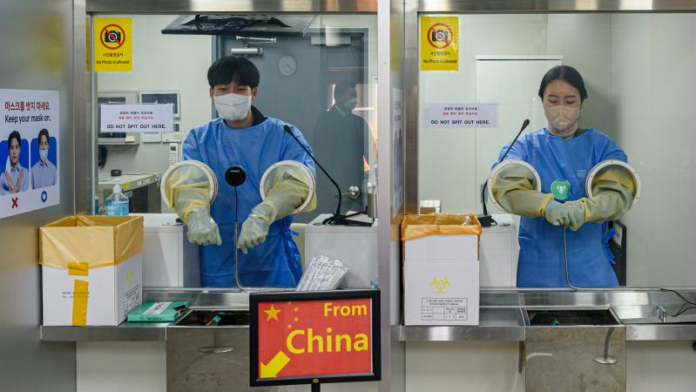Hong Kong CNN —
Chinese authorities have stopped issuing short-term visas to South Korean citizens in the country’s first retaliation against Covid entry restrictions on arrivals from China.
“Visas for business, tourism, medical treatment, transit and general private affairs will be suspended for South Korean citizens effective today,” the Chinese Embassy in Seoul said in a statement. The measures will be “adjusted” if South Korea cancels its “discriminatory” entry restrictions on China, the embassy added.
Beijing has decried recent restrictions or screenings placed on travelers from China, whose numbers are expected to increase after a significant easing of border restrictions.
A number of countries have moved to require testing from travelers from China, citing concerns over the country’s recent surge of infections – and limited data about the outbreak – since Beijing dropped its stringent Covid controls last month.
South Korea went a step further on January 2 by suspending short-term visa applications from its consulates in China until the end of the month. It also requires people traveling from China to take a PCR test within 24 hours of arrival and remain in isolation until receiving negative results.
From January 5, it has also asked people traveling from China to present a negative PCR test taken within 48 hours of departure or a rapid antigen test taken within 24 hours.
China’s move follows a Monday phone call between Foreign Minister Qin Gang and his South Korean counterpart Park Jin, during which Qin “expressed concern” over the restrictions and urged Seoul to take an “objective and scientific” approach, according to a readout from the Chinese side.
In recent weeks, more than a dozen countries including the United States, France, Canada, Japan and Australia have mandated testing on travelers from China, though have not limited the issuance of visas.
China’s Foreign Ministry earlier this month broadly decried the measures as unscientific and vowed to take “corresponding countermeasures for different situations in accordance with the principle of reciprocity.”




